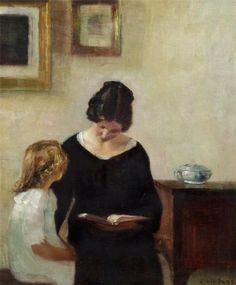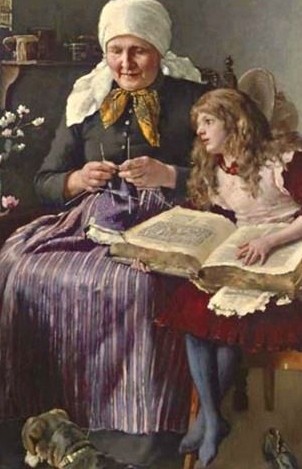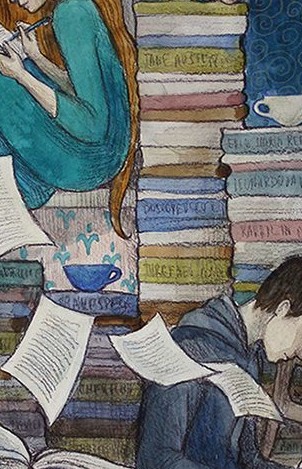Literacy Blogs
- All
- 3-cueing
- academic learning time
- academic vocabulary
- accommodations
- accountability testing
- Active View of Reading
- adolescent literacy
- afterschool programs
- alphabet
- amount of instruction
- amount of reading
- argument
- assessment
- auding
- author awareness
- automaticity
- balanced literacy
- beginning reading
- Book Buddies
- Book Flood
- challenging text
- classroom organization
- close reading
- coaching
- cohesion
- Common Core State Standards
- complex text
- comprehension strategies
- content area reading
- context analysis
- curriculum materials
- Daily 5
- decoding
- departmentalization
- DIBELS
- dictionary skills
- digital texts
- disciplinary literacy
- dyslexia
- early interventions
- effective teachers
- Emily Hanford
- executive function
- family literacy
- fingerpoint reading
- foundational skills
- graphic novels
- guided reading
- heterogeneous grouping of students
- homework
- improving reading achievement
- independent reading
- independent reading level
- informal reading inventories
- informational texts
- instructional level
- invented spelling
- jigsaw instruction
- knowledge
- leadership
- learning disabilities
- Lexiles
- linguistic comprehension
- listening comprehension
- literacy charities
- literacy policy
- literary interpretation
- main idea
- morphology
- motivation
- narrative text
- National Early Literacy Panel
- nonsense words
- oral language
- oral reading fluency
- paraphrasing
- Pause, Prompt, Praise (3P)
- personalized learning
- phonemes
- phonemic awareness
- phonics
- press and media
- principals
- prosody
- Readers' Workshop
- reading comprehension
- reading disabilities
- reading intervention
- reading levels
- reading models
- Reading Recovery
- reading research
- reading skills
- reading strategies
- reading to children
- reading wars
- reading-writing relations
- remedial reading
- rereading
- Response to Intervention
- Scarborough's Rope
- science of reading
- seatwork
- semantics
- sentence comprehension
- sequence of instruction
- set for consistency
- set for variability
- shared reading
- shared reading
- sight vocabulary
- simple view of reading
- Simple View of Reading
- small group instruction
- social studies
- sound walls
- Special Education
- speech-to-print phonics
- spelling
- stamina
- summarizing
- Sustained Silent Reading
- syllabication
- syntax
- syntax
- testing
- text complexity
- text interpretation
- text reading fluency
- text structure
- theme
- think-pair-share
- trauma
- visualization
- vocabulary
- word walls
- writing
- zone of proximal development (ZPD)
Why Your Students May Not Be Learning to Comprehend
Teacher question: "My district is trying to shift literacy instruction to be in line with the science of reading. We are wondering where comprehension strategies fit into Scarborough’s Reading Rope? Inferences and making connections are part of Verbal Reasoning, but what about other skills my students still need to be taught, like understanding and using text structure, summarizing, visualizing, questioning? There is much research to support explicit instruction in comprehension strategies, so where do they fit? Also, even when our teachers do a good job of scaffolding students’ comprehension of complex text, our at-risk students struggle to independently process texts on ...
What does the Easter Bunny have in common with the independent reading level?
Teacher question: I know you criticize the instructional reading level. But what about the independent reading level? Should we make sure that when children are reading on their own that they select books at their independent level or doesn’t that matter? Shanahan response: Back in the 1940s, Emmet Betts was trying to figure out how to improve reading instruction. The idea of matching books to students’ learning needs had floated around for decades in the research community. The 1910-1920s had ushered in reading tests and readability formulas, which provided clear scientific evidence that both books and children varied in difficulty (books) and ...
Letter names or sounds first?… you might be surprised by the answer
Teacher question: I teach kindergarten. We are trying to follow the science of reading. We believe that is the best way to go. However, my colleague and I are disagreeing over one aspect of our program. Should we teach the letters first, the sounds first, or should we teach them together? Shanahan response: This is such a practical question and often research fails to answer such questions. That shouldn’t be too surprising since researchers approach reading a bit differently than the classroom teacher. A good deal of psychological study of letters and words over the past century hasn’t been so much about how ...
Why doesn't increasing knowledge improve reading achievement?
Teacher question: Can we raise student achievement by teaching subject area content knowledge? I’m concerned about this approach because I work with struggling readers. We know a lot about how to help them learn to read, so I was wondering if there is evidence that teaching “knowledge” to such students really makes any difference. I recently came across a study of a widely touted reading program that is supposed to be better because it emphasizes knowledge building and yet the results weren’t positive at all (See, Gorard, & Siddiqui, 2017). Shanahan responds: In February I go to my doctor for my annual health ...
3P versus 3-cueing: Why recommend one and shun the other?
Teacher question: Can you explain the difference between 3P (Pause, Prompt, Praise) and 3 cueing? I know you encourage one and discourage the other, but they seem to be the same thing to me. Help. Shanahan reply: At Shanahan on Literacy, we strive for consistency. Let’s see if we can get this straightened out. First, let’s make sure we understand what these two trios are about. Pause, Prompt, Praise (3P or PPP or P3) is used to guide oral reading practice (Glynn, 2002). Research has shown that having students read challenging texts aloud with support and repetition improves reading achievement (NICHD, 2000). 3P tells the ...
Lets' Be Charitable to Literacy
Each year, Shanahan on Literacy identifies the highest ranked charities that support book distribution and other literacy-oriented initiatives. These are all 4-star rated programs that are national or multi-regional in scope. The high ratings mean they are transparent in their reporting and spend all or most of the money on their mission rather than overhead. That means if you donate to these organization good literacy things happen for lots of kids. I have no connection to any of these organizations, and please remember your local literacy charities, too (I’m not in a position to consider those). We’ll soon be back to ...
Should we use narrative texts to teach science, math, and social studies?
Teacher question: In graduate school, we are being taught that we should use “hybrid texts” to teach content subjects. As a middle school math teacher, I think this is a horrible idea given our scant resources. Where do you stand on the use of hybrid text? Shanahan response: I share your concerns. I think hybrid text or mixed-genre text is an instructional idea that misses the point and leaves kids ill prepared for the future. Hybrid text is an expository text that includes narrative elements. A widely known example would be the Magic School Bus books. Those books present various social studies or science ...
What Kind of Early Reading Intervention Should We Provide?
Teacher question: It seems there is currently a focus on intervention solely for the word recognition side in the early grades. The explanation is that most students who struggle, struggle with decoding, and I of course agree. However, I would add that many of those also struggle with language comprehension, with language development deficits that are measurable and observationally apparent in conversation with them as preschoolers, kindergartners, and first graders. The district’s current assessment model pretty much excludes them any assessment of language comprehension. I was told that one of the main reasons that children struggle later with reading comprehension is from ...
Should We Alter the Reading Benchmarks Because of the Pandemic?
Teacher questions: Over the past few weeks, I'e fielded many questions about testing – from policymakers and teachers. Here are a couple of examples: 1. Should schools lower grade level benchmark reading expectations due to lost instructional time during the pandemic? Please advise ASAP. 2. A question that keeps coming up is, if a student cannot read grade level text on their own, can they then listen to the text and answer the questions on an assessment in order to be considered "meeting" reading standards 1-9 in grades 2-5 since there is a specified Lexile band for those grades through standard 10? Shanahan response: Over ...
Does Your Comprehension Strategy Instruction Have this Key Element?
I was observing writing instruction in an 8th grade suburban classroom. The experienced teacher was quite skilled and he both managed his classroom well and was sophisticated in his ability to interpret literary text and to engage students in reading that penetrated deeply into the meaning of the text. On this day his lesson focused providing students with tools that would overcome writing blocks. His students often struggled to figure out what to write about; they agonized when given a writing assignment. He demonstrated his strategy and directed the students to give it a try. One especially bright young man towards the ...









